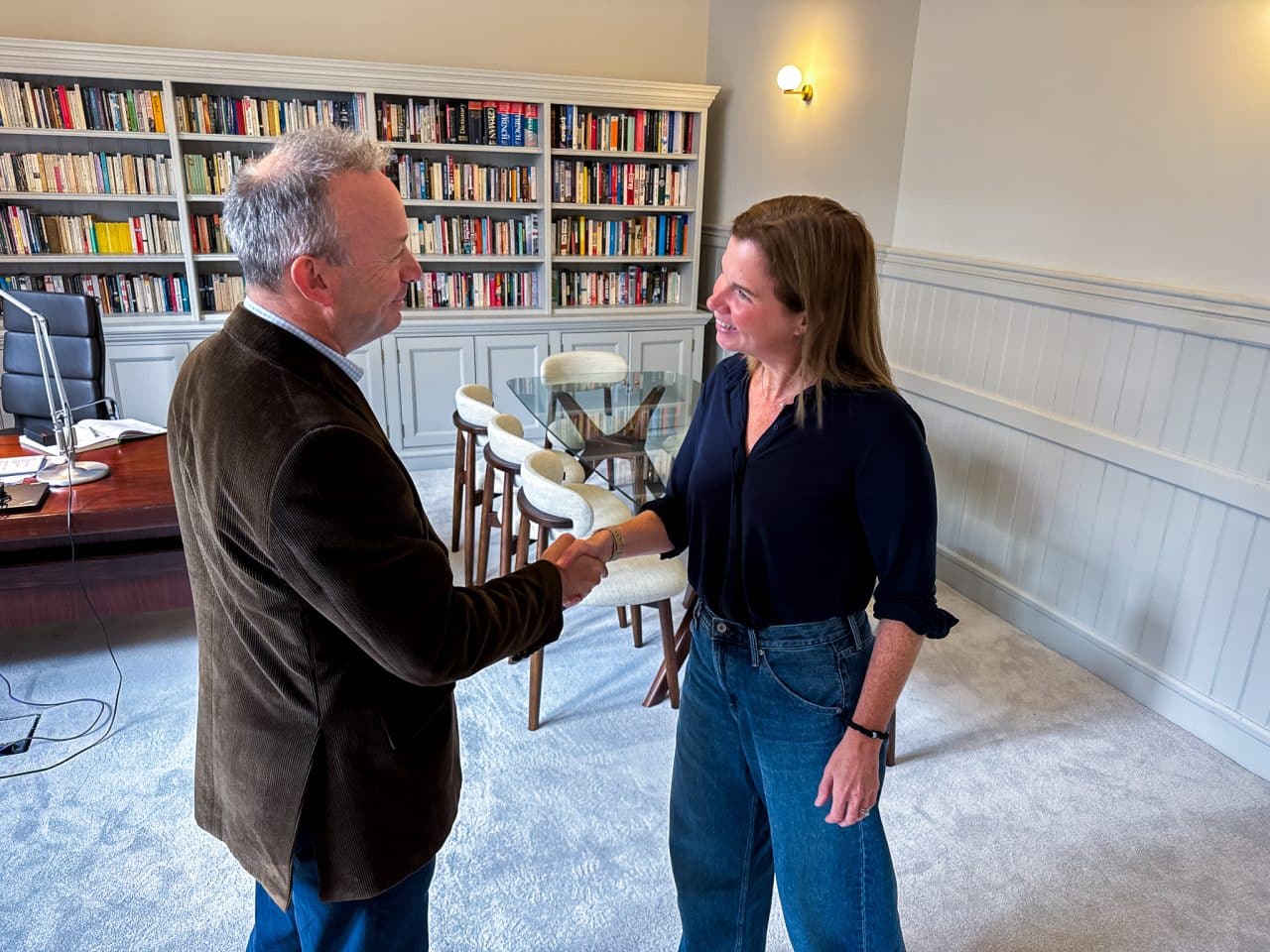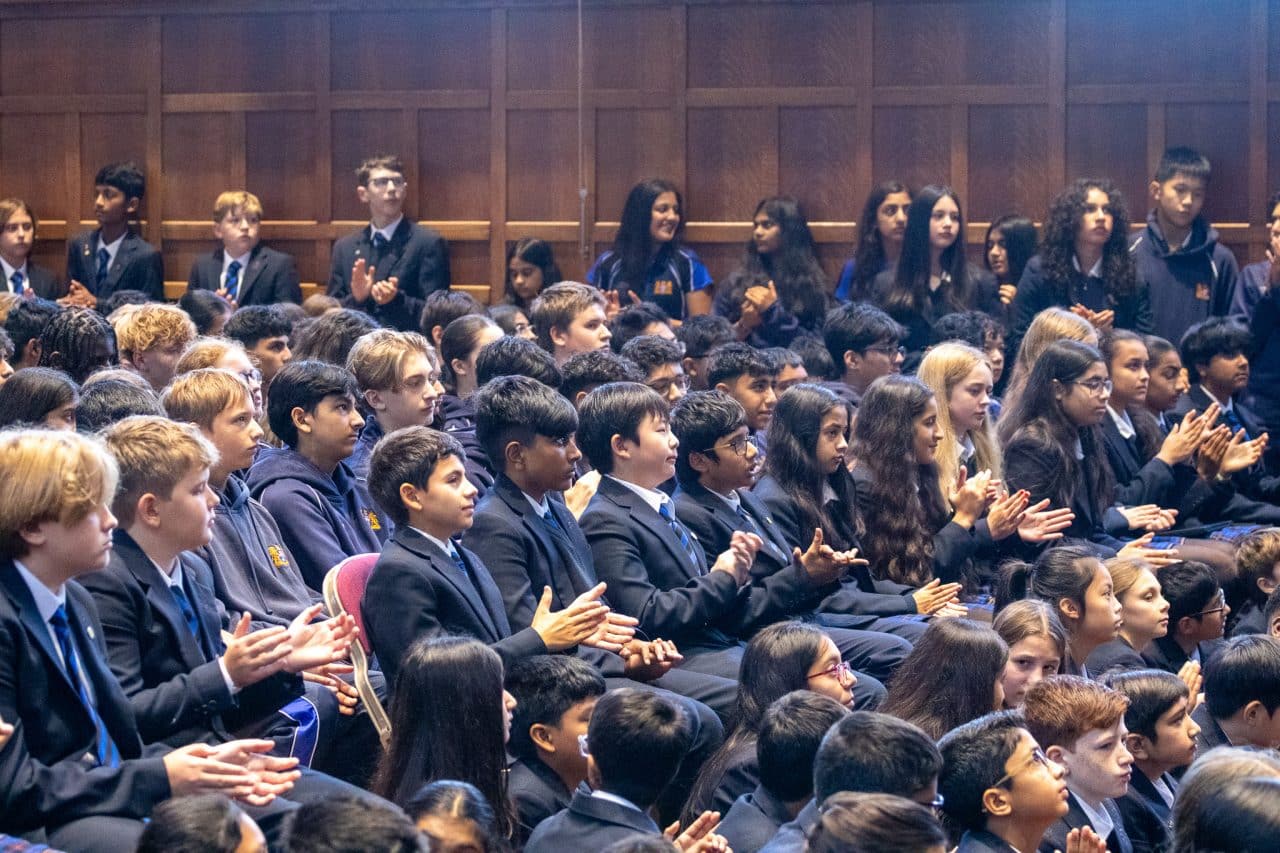Assembly Insights: Starting With a Handshake
Assembly Extract from Mr Alex Frazer, Head
Presented on Thursday 4 September 2025
Around the end of last term, I had a couple of contrasting experiences that got me thinking over the holidays. Both experiences had a lot to do with shaking hands – a standard way in our society to greet or acknowledge each other in a number of formal or semi-formal contexts.
The first experience was right here on this stage in the last assembly of the academic year. You’ll remember that it was our awards assembly, and a lot of you came up to the stage, collected a prize and shook my hand before going back to your seat. Shaking hands properly is actually a life skill, and there’s a bit of a technique to it. I think it’s fair to say it’s a skill that some of you are more used to than others.

The week after the end of term, I was kindly invited to speak at the Year 6 prize giving of one of our feeder Prep schools. It was a nice big year-group of three forms, and everybody received an award in an envelope, which I had the honour of bestowing on them. Every girl and boy came up and gave me an excellent handshake – they each looked me in the eye, put their hand in mine, gave the right amount of grip, and said a confident “Thank you Mr Frazer”.
So, two handshaking events, one week apart. And I’m afraid to say that, on balance, our feeder school outhandshook Bancroft’s by quite a margin. There are some first-class handshakers among you, but all the pupils knew what they were doing. As a result, they all came across as outgoing, self-assured young people who were happy to engage with someone new.
That’s why getting your handshake right actually matters – because very often it is part of making a confident first impression in a situation that is important to you. The most obvious of all examples is a job interview, but there are countless others in the social, professional and educational realms. A decent handshake is also a powerful way of you showing respect and interest in someone else, putting them at their ease and making them feel cared for in that moment. It’s about how going towards someone, and making them feel included, is one of the most human things that we can all do.
The whole episode also got me thinking more broadly about politeness around school. One of the things I’ve noticed this past year is how genuinely kind and friendly you all are – it makes being part of this community a real pleasure. What will make us even stronger is paying attention to the small courtesies that show care and respect for one another. Simple things make a big difference: noticing if someone is behind you and holding the door; letting someone else go first – especially, dare one say it, if they are an adult; saying please and thank you – particularly when you get your lunch. These little gestures create a culture where everyone feels valued, and they’re something I’d love us all to build on as we begin the year together.
Something else which has been on my mind for a while, and which is closely linked to courtesy and communication, is the concept of oracy. If literacy is the ability to understand what we read in an accurate and nuanced manner and to express ourselves in writing in a mature, well-argued way using sophisticated vocabulary and fluent grammatical structures, then oracy is about applying the same kind of skill and rigour to what we hear and what we say. It’s about learning to articulate our thoughts to others, to listen attentively and to respond calmly and with intelligence – in other words, with reasons, examples and justifications.
In late July, The Guardian newspaper published a powerful article asserting the importance of oracy as a life skill, and reporting on an open letter sent to the Prime Minister by 60 signatories, including some former Secretaries of State for Education, university professors, writers and speakers. They wanted to highlight the importance to young people of making oracy part of their education and to challenge the Prime Minister to do more to make this a reality across all schools.
At Bancroft’s we are trying to do more for oracy, in class and in co-curricular activities, and I would really urge you to think about how you are developing your listening and speaking skills. In a world where artificial intelligence is outpacing our ability to complete tasks across a huge range of areas, the human factors that we can bring to the table are going to be crucial for our future success. Working towards excellent exam results matters deeply for entering the jobs market in years to come, but so do your communication skills and your ability to get on with other people.
RecentlyThe Times newspaper highlighted a study by Harvard University which suggests the following: once in a professional job, success at work and career progression depend a whopping 85% on your social and emotional intelligence and only 15% on your technical or role-specific skillset. Those figures feel a touch extreme to me, but there is no question that communication and interpersonal skills are just as important to be effective in the workplace as academic and professional knowledge. To do well, we clearly need both.
Friends of mine who are employers in the commercial world readily reflect this. One man I know who is managing partner of a property investment firm of 50 people always tells me that his junior members of staff – who all come from leading universities – need a good grasp of business and financial maths, but if they can’t also deal confidently with investors, clients and joint venture partners, they are pretty much useless to him. Another friend, who used to recruit top-quality graduate trainees into a leading management consultancy firm, where all projects required constant teamwork, liked to apply the airport test when discussing candidates who had done well on the technical parts of the interview. The test was a question the interviewers asked themselves: if we were stuck on a long delay in an airport far from home, would we want to be stuck with this person?
With that thought, I shall draw our first assembly of the new year to a close. Work on your communication skills, remember to be courteous – because while it’s nice to be important, it’s important to be nice – and practise giving a decent handshake.
Have an excellent start to term!




